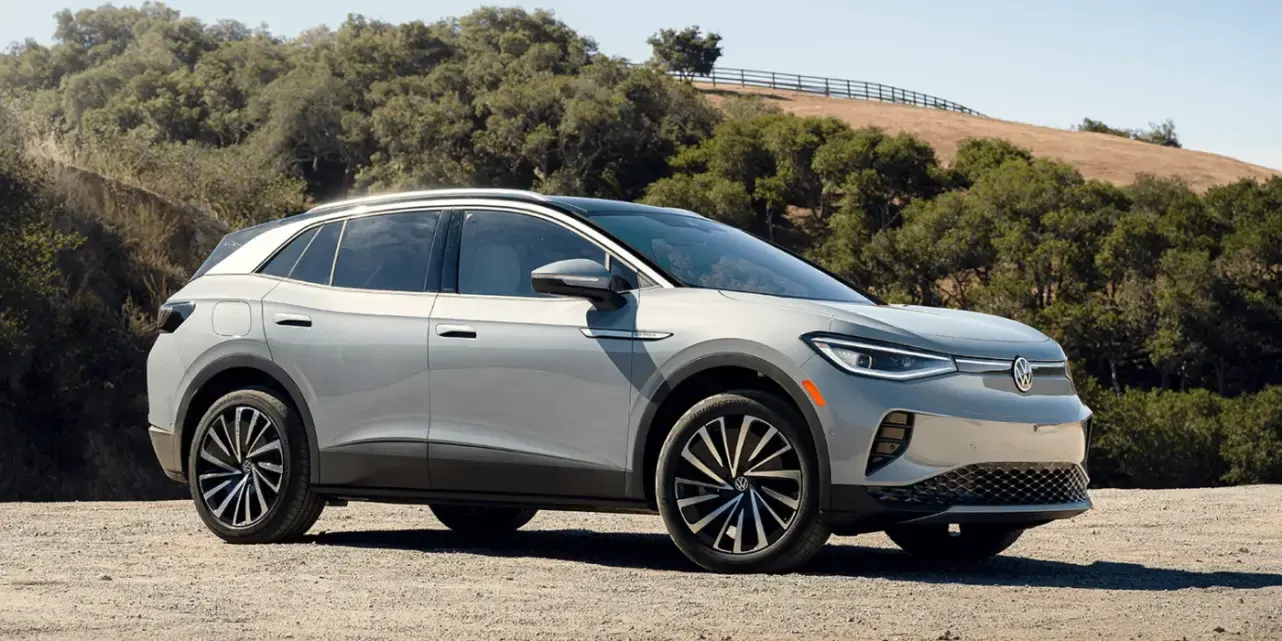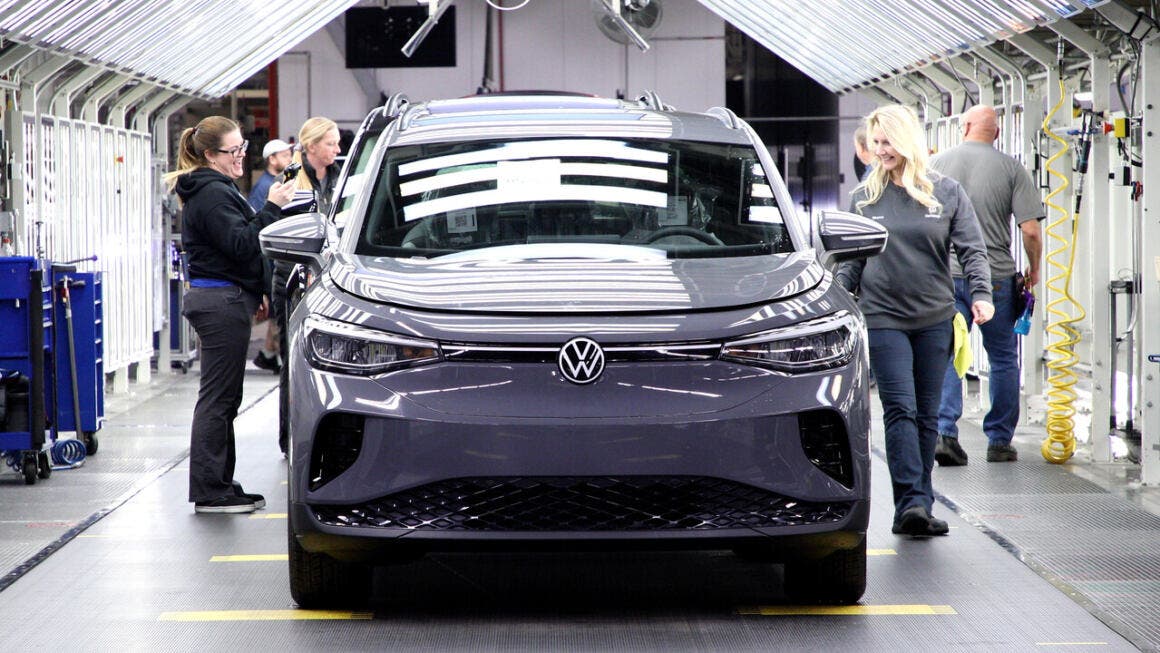Volkswagen will halt production of its ID.4 at its Chattanooga plant starting at the end of October, a move that will temporarily sideline about 160 workers. The decision comes as sales of the EV have sharply declined, forcing the automaker to scale back output to match weakening demand. To soften the blow, Volkswagen will supplement Tennessee’s unemployment benefits so that affected employees can still receive 80% of their base pay and keep their benefits.
“This adjustment does not change our commitment to the ID.4, our growing EV portfolio, or our Chattanooga team” spokesperson Michael Lowder said, stressing that the move is purely market-driven.

The numbers highlight the challenge: from April to June, ID.4 sales dropped 65% compared to the same period in 2023, with fewer than 2,000 units delivered. Overall, nearly all Volkswagen models in the US saw declines, except for the ID. Buzz and Golf R, resulting in a 29% sales decrease. Adding to the downturn, the ID.4 lost eligibility for the $7,500 federal EV tax credit in January due to stricter sourcing rules for battery materials.
Volkswagen, which employs more than 4,000 workers at the Tennessee plant, has not said how long the furloughs will last. The facility currently builds the ID.4, Atlas, and Atlas Cross Sport, and its flexible production line helps reduce the impact of halting one model.
This isn’t the first setback for the ID.4 in Chattanooga: in 2024, a recall affecting nearly 100,000 vehicles due to faulty door handles led to 200 workers being furloughed for months, with sales plunging 93.9% in that quarter alone.

The local economic climate adds pressure. Other major employers in the Chattanooga area, including BlueCross BlueShield, Wacker Chemical, and Astec Industries, have recently announced workforce reductions. In July, the metro area’s unemployment rate rose to 4%, the highest in four years, though still below the national average of 4.2%.
Volkswagen began building the ID.4 in Chattanooga in 2022 following an $800 million investment, marking a key step in its North American EV strategy. Despite current setbacks, Cars.com listed the ID.4 last June among the ten most “American-made” vehicles contributing the most to the US economy.
